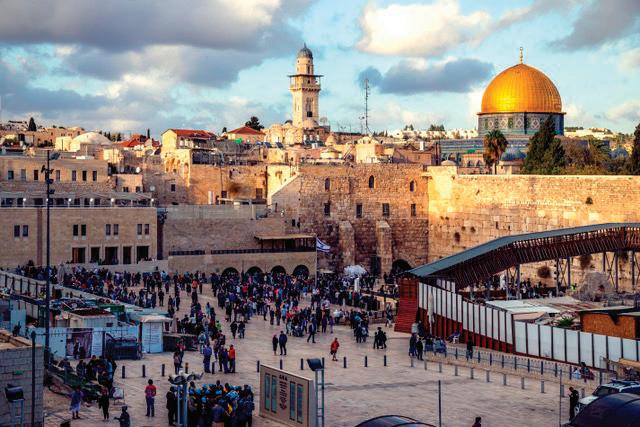
2 minute read
HANUKKAH IN ISRAEL
HANUKKAH IN ISRAEL By Helen Hill & Yvonne Cohen Hadassah Jacksonville
We sat down with Jax Shaliach, Stav Brener, a few weeks ago to discuss – what else? Israel!
Advertisement
In preparing for an upcoming program with Stav, we first asked him to describe what it’s like in Israel during Hanukkah and we compared some of the differences between the holiday in Israel and the holiday in the USA. The first sign that Hanukkah is coming, he told us, is that you start seeing sufganiyot everywhere. The production and sale of these sweet, fried yeast-dough delicacies can start as early as September, certainly right after Sukkot. Sufganiyot stands start popping up in the malls and on the streets. They are in bakeries, grocery stores, convenience stores -- you can literally buy them anywhere.
Not only can you get plain, powdered sugar or jelly-filled sufganiyot – today, Israeli bakeries make more expensive, specialty versions as well, stuffed with a variety of creams, dulce de leche, cappuccino, and truffle to name a few. Some are topped with various extravagant toppings, from coconut shavings and tiny vials of liquor to meringue and fruit pastes.
Other holiday preparations start in the schools. Children begin to make their own chanukiyot (note: these 9-branch candelabras are not called menorahs in Israel, as that is the word describing the 7-branch candelabra associated with the Temple). After they make their chanukiyot, they bring them home and most families gather around every night to light the candles. This is an intimate family holiday; however, families often gather on one of the nights of Hanukkah with their entire extended family. There may be business, or work related, get-togethers during the holiday as well. These celebratory gatherings are warm and happy and always include singing and lots of food.

Stav Brener talks with Hadassah about Hanukkah - and a lot more

Unlike here in the States, gift giving is not part of the holiday. Grandparents may give money to the kids – but presents are not part of the celebration. Interestingly, because it is not a religious holiday per se, some secular families discontinue the home celebration after their children have grown. “That doesn’t mean they discontinue eating sufganiyot”, he added.
Of course, our discussion went to COVID and how the pandemic is going to impact Hanukkah this year. It was then we decided to open up the conversation with the community. 27

Hadassah is joining with the Jewish Federation & Foundation and the JCA to take an in-depth look at what’s happening in Israel hospitals, in politics and even in educational institutions. How has Israel been coping with the pandemic, what types of changes and accommodations have Israelis had to make, and how are Israelis dealing with these changes?

We hope you will join us on December 8, at 12:00 Noon when we will have a virtual conversation with Stav on the topic, "How is Israel dealing with COVID?" Bring your lunch, bring your questions, and join us as we learn together. RSVP to Stav at jaxshlichut@jewishjacksonville.org.











